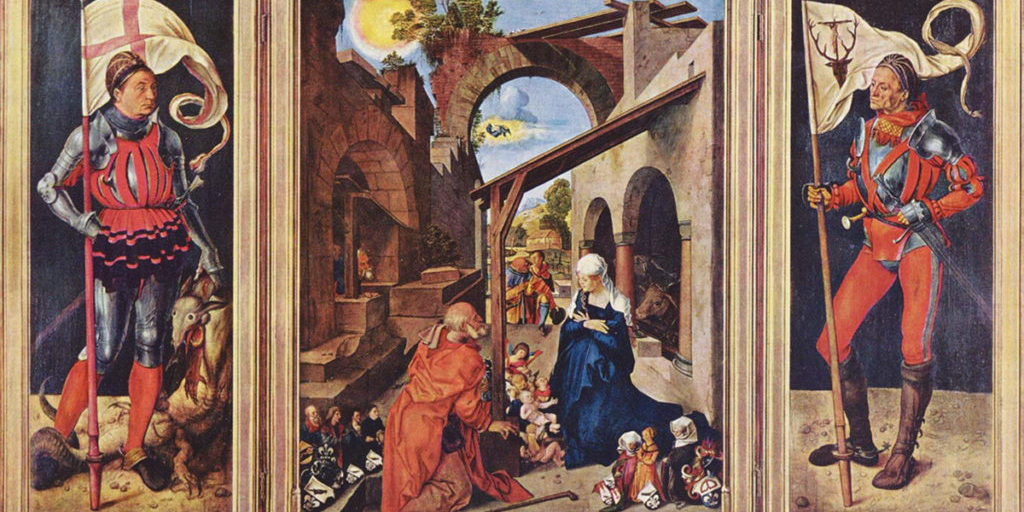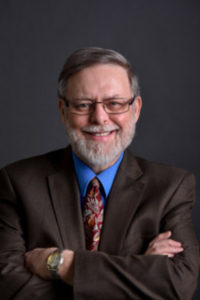
The Incarnation of the Impassible God: The Mystery of the Incarnation is Diluted by Theistic Mutualism
One of the charges often hurled against historic Christian orthodoxy is that classical theism cannot be preached. Their complaint is that the God of historic orthodoxy – the First Cause of all things – is cold, impersonal, and distant. We are told that what we need is a god that is more accessible, a god who feels our pain and sympathizes with us; in short, a god who is more like us. The unstated premise seems to be that we can and should fashion a god in our own image that corresponds to our felt needs. All these arguments are basically the same as the ones used by the Israelites to convince Aaron to fashion the golden calf.
Theistic Mutualism as Theodicy
During the twentieth century theistic mutualism has been steadily gaining acceptance within Evangelical circles. One of the key factors behind the push to replace the God of classical, Christian orthodoxy with a new god who evolves through time with us, a being among beings, is the problem of theodicy.The God of classical orthodoxy is the transcendent Creator and sovereign Lord of history and the First Cause of all that exists other than himself. Click To Tweet The God of classical orthodoxy is the transcendent Creator and sovereign Lord of history and the First Cause of all that exists other than himself. Such a God is not merely one actor among others in the play but the playwright who writes and directs the play. Such a God is ultimately responsible for all that occurs in history. Whether you are Reformed and cheerfully affirm a total Divine control of all that occurs, or whether you try to get God off the hook for innocent suffering by invoking libertarian free will, the problem is the same. If God does not will innocent suffering, he at least chooses not to prevent it. From the point of view of Enlightenment critics like Voltaire or Hume it is all the same. God could prevent suffering. He does not. Therefore he is culpable.
This critique of the classical doctrine of Divine providence made great inroads among the intellectual class of Europe and North America during the eighteenth century. In the nineteenth century the Christian doctrine of creation came under attack from Darwinism. As the nineteeenth century unfolded, one orthodox doctrine after another was questioned, if not rejected outright: original sin, substitutionary atonement, the virgin birth, miracles, Biblical inerrancy, etc. As orthodoxy declined, however, social progress continued full speed ahead. By the end of the Victorian era the intellectual classes of Europe were convinced that they could have perpetual historical progress despite rejecting core Christian doctrines. Modernity, having begun in the voluntarism, univocity, and nominalism of late medieval scholasticism – the via moderna – now moved from the ivory towers to the school classroom, the factory, and the pub. Click To TweetProgressivism was supplanting Christianity. It seemed that humanity was progressing in every way despite casting off the myths and superstitions of the Bible and historic Christianity.
Then the Great War happened. The unbridled optimism of the long nineteenth century – the Victorian Age – was suddenly undermined by the brutality of trench warfare, poison gas, and the destruction of the best of European manhood in a meaningless struggle for basically nothing. How could this be fit into the narrative of progress? It could not. This was the shock that converted the mass of the population to an agnostic and Darwinian outlook.
Of course, pockets of Christian faith survived and even flourished at the local level in many places, especially in the United States, but at the cultural level something snapped. Modernity, having begun in the voluntarism, univocity, and nominalism of late medieval scholasticism – the via moderna – now moved from the ivory towers to the school classroom, the factory, and the pub.
Modern Westerners found it increasingly difficult to believe in the transcendent Creator and sovereign Lord of history who alone is to be worshipped. They did not so much adopt a theoretical atheism as a reduced view of God as one who is well-meaning but lacking in power. Most people still vaguely believed a god of some sort, but not in the God of classical Christian tradition who is in charge of history and directing all things to their appointed ends by means of his gracious providence. That concept of God was increasingly rejected. To be fair, it is always a struggle to believe in the God of the Bible in the face of the suffering of the innocent. This has always been true. What changed was that a larger than ever number of people were losing the struggle to live by faith.
Christian theologians today are faced with the temptation to give the people what they think they want rather than the truth. It is a perennial struggle faced by the wise throughout history. What should theology do in this situation?
Many theologians today are letting go of classical theism and embracing theistic mutualism. Christian theologians today are faced with the temptation to give the people what they think they want rather than the truth. Click To TweetThe God of theistic mutualism seems like an easier sell in a post-Darwin, post-Christian world. The often-overlooked but salient point about the god of theistic mutualism is that this god cannot be held responsible for all the evil that occurs in the world. This god is involved in the fight, doing his best, winning a lot, losing occasionally, but always doing his best. He is limited by the unreliability of his allies (namely, us) and he has to respect the highest thing in the universe, (namely, free will). The god of theistic mutualism is a respectable, reasonable god who seems to offer comfort without confusion and religion without the problems besetting the older doctrine. Many prefer this God to the God of Nicene orthodoxy.
The Mystery of Christmas
The God who planned the Incarnation is not the God of theistic mutualism, however, but the impassible God of classical theism. Christmas, therefore, is the celebration of a great mystery. It is a much greater mystery than the incarnation of the god of theistic mutualism would be. If the god of theistic mutualism were to become incarnate, it would merely be another episode in his constant process of change. It would be surprising perhaps, but hardly inconceivable. God would not be entering time because he would already have been in time. He would simply be changing in an unprecedented way.Christmas is a great mystery because the God of classical theism is not in time and does not change. Click To Tweet
Christmas is a great mystery because the God of classical theism is not in time and does not change. Christmas is the Incarnation of the impassible God. It is the mystery of how the second person of the Holy Trinity, the one, simple, perfect, eternal, immutable, self-existent, First Cause of the cosmos, has assumed into union with himself a human nature so that the eternal Word and Son has now become Jesus Christ the God-Man. Jesus Christ is one person with two natures, one fully divine and one fully human. He is homoousios with the Father with respect to his divine nature and homoousios with us with respect to his human nature. This mystery is beyond the capacity of the human mind to grasp. All we can do is proclaim it because it has been revealed to us that it happened.
God decreed that he would take on flesh for a specific reason. The reason was that without taking on human flesh the eternal, impassible God could not suffer and die for our sins. Apart from the Incarnation, he could not be tempted in all points like as we are and he could not live a life of perfect obedience to the law of God as the Second Adam and founder of a renewed human race. Thus the Incarnation was necessary for the plan of redemption to be carried out. This is why Christmas is rightly associated so closely with redemption. The Incarnation made the obedient life and atoning death of the God-Man Jesus Christ possible.
If theistic mutualism was true, the Incarnation was not necessary for those reasons. The god of theistic mutualism is already able to change and suffer, so the Incarnation loses it utter newness and much of its significance. At best, the Incarnation can only reveal to us what is always true of God. He did not just suffer once for all at Calvary, he suffers continuously throughout history.
The doctrine of the hypostatic union teaches us that Jesus Christ is fully Divine in his Divine nature and fully man in his human nature. As man he is able to perform the active obedience perfectly, in contrast to the first Adam, who failed to do so. Also as man he is able to die on the cross, which we call his passive obedience. As God he is not able to be be overcome by death and so triumphs over the grave. If theistic mutualism were true, the need for two natures in one person would be eliminated. Jesus Christ could have been god having changed into a new form.If theistic mutualism were true, the need for two natures in one person would be eliminated. Jesus Christ could have been god having changed into a new form. Click To Tweet
It is simply not the case that the orthodox doctrine of God cannot be preached. In fact, the Church has not ceased to preach the Incarnation of the impassible God from the apostolic age to the present. Theistic mutualism is not needed in order to make God relevant. The doctrines of Trinity and Incarnation stand at the heart of Christian Faith and they explain how Jesus Christ can be both the impassible God and the Suffering Servant of Isaiah 53 at the same time.
Christmas is a wonderful mystery and a beautiful time to sing praises to the Holy Trinity. God was not moved to intervene for our salvation because of being moved by our plight; his decision to set in motion the plan of redemption was not caused by anything eternal to himself. It was pure grace. The answer to the question why did God send Christ to save sinners is not that the sinners were cute or pitiful or whatever. The true answer is that there is no reason expect God’s own gracious will to do so. In the end the mystery of Christmas equals the free grace of God and the free grace of God remains a mystery. And that, as they say, will preach.
This post was originally published in Dr. Carter’s Newsletter.

